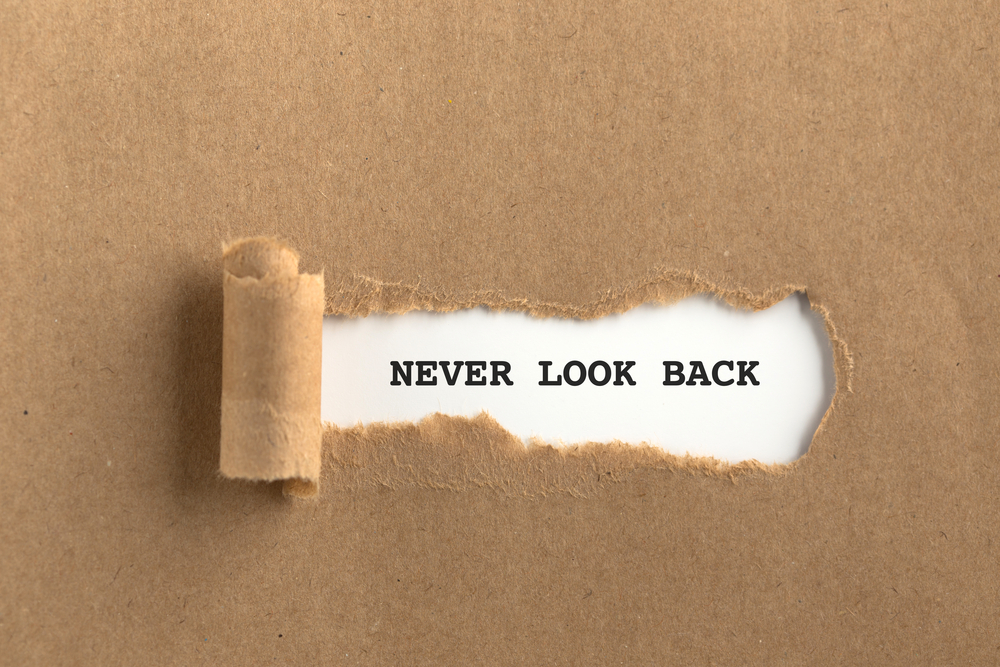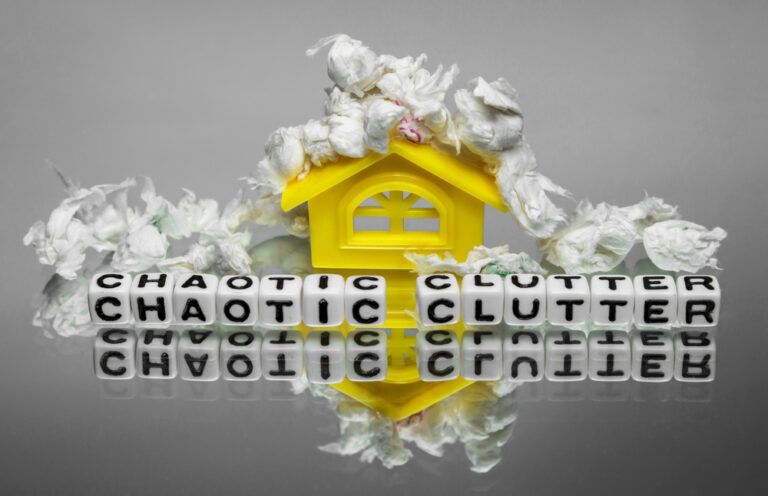Decluttering: How to Let Go Without Regret
If you are looking for ways to declutter without worrying about regretting your decisions later on, you’ve come to the right place!
In this article, we will first explore the reasons behind the fear of feeling regret when decluttering, then I will share some practical strategies to let go without the lingering doubts.
Why Do You Fear of Regret When Decluttering?
First, let’s take a look at these 3 possible reasons why you might worry about regretting your decluttering decisions later on. Once you know your reasons of worries, you can find the appropriate solutions.
1. You Worry You Might Need It
This is probably the most common reason for the fear of regret when decluttering. Your mind just goes wild and thinks about all the possible “just in case” scenarios that can happen where you might need this item again.
The worry that you might need to use it someday is holding you back from making the rational decision to declutter.
2. You Worry You Might Miss It
Some possessions hold emotional significance, making it difficult to let go.
When I was decluttering for my overseas move, I was sad to let go of my son’s picture books from his baby/toddler years. I worried that the wonderful memories of reading together would fade without the physical reminder of those books.
3. You Worry You Might Be Blamed For Decluttering It
Think about the dress, scarf, gloves, mugs, home decors, etc., you received as gifts from loved ones but don’t really like. You’re hesitant to get rid of them because you worry about their reaction when they find out.
Also, if there are toys and artworks that you want to declutter on behalf of your kids, you might worry about the slim chance that they will remember those toys/artworks and get mad at you.
Tips to Declutter Without the Fear of Regret
Now let’s take a look at some possible solutions for preventing declutter regrets.
1. Set Specific Guidelines For What to Declutter
Before starting each decluttering session, think about what stays and what goes based on condition, frequency of use, and if there are multiples or items with a similar function.
For example, let’s say you plan to declutter your closet for the next hour. Before you start, you can create rules such as: 1) clothes you haven’t worn in over a year, 2) pants that are two sizes smaller, and 3) t-shirts that aren’t 100% cotton.
With the guidelines you’ve created in advance, you can easily identify items to declutter based on these rules.
2. Use a “MAYBE” Box
Before you go ahead and put your uncertain items in the box, it’s important to understand that the MAYBE box is NOT a way to avoid making decisions.
There are two options for how to handle items in the MAYBE box:
Option #1: Set a Donation Date:
Label the box with a specific date, which could be three or six months from now. During this time period, if you find that you miss or need any of the items you’ve placed in the box, simply take them out. However, as the deadline approaches, commit to donating whatever remains in the box.
Option #2: Visible Reminder:
Alternatively, you can put the box in a noticeable spot where you pass by frequently. For example, place the box in the middle of the living room or in the center of the hallway, where you must see it multiple times a day.
This way, you are prompted to think about the items in the box frequently. When you’ve given it enough thought, you can make rational and confident decisions without worrying about regretting them later on.
Personally, I prefer Option #2. How about you?
3. Don’t Declutter Sentimental Items When in a Bad Mood
Emotions can cloud your judgment, leading to impulsive decisions.
For example, if you and your husband are in the middle of a disagreement, you may feel inclined to declutter all the gifts he has given you. However, it’s very possible that you’ll experience regret over this decision once you’ve reconciled.
Make sure you’re in a calm emotional state when you are about to declutter sentimental items. This way, you’ll make rational decisions and prevent regretting your decisions later on.
4. Start with Easily Replaceable Items
To build your decision-making skills and gain confidence, begin with items that are easily replaceable.
For example, when you have doubts, target those that cost less than 20 dollars and can be repurchased easily at a store nearby your home.
By tackling these low-cost and readily available items first, you create a low-pressure environment for decision-making. As you practice and gain confidence, you can gradually overcome the fear of regret.
5. Understand Memories Are in Your Heart

To continue with my story mentioned earlier about decluttering my son’s picture books from his baby/toddler years:
The fear I had about forgetting precious memories did not happen. The vivid memories of our reading moments are already engraved in my heart. In addition, I had taken numerous photos/videos of myself (and my husband) reading to my son. These photos and videos served as good reminders of those precious memories.
To honor memories without cluttering your space, consider taking photographs of the sentimental items, creating a digital memory album, or even making a scrapbook. By doing so, you preserve the sentimental value while minimizing the physical clutter.
6. Think of Creative Ways to Display Sentimental Items
In addition to making photo albums mentioned above, think about other creative ways to display sentimental items.
Let’s say you have a collection of seashells from family vacations. Consider turning them into a decorative piece for your home. Display them in a glass jar or create a shadow box with labels indicating where each shell was found.
This way, you can enjoy your cherished items instead of letting them sit in the corner of your storage room.
7. Take Your Time
While some time pressure can be motivating, make sure that you have enough time to make thoughtful decisions. Rushing through decluttering will lead to hasty choices and potential regrets.
If you like the idea of “slow decluttering”, you could commit to getting rid of one item (or two, or N items) a day, ensuring that each decision is thoughtful and intentional.
Over time, these small actions add up and lead to significant decluttering progress.

8. Don’t Declutter on Behalf of Someone Else
Decluttering without permission can lead to misunderstandings, conflicts, and a loss of trust within the household. It’s important to let each person make decisions about their own stuff to maintain good relationships and avoid later regret.
If you are a parent, you might be wondering: is it possible to have my child declutter his/her own toys?
From my own experience, it is possible! You just have to be patient and focus on the long-term benefits your child will gain. Here is my article on helping your child declutter toys.
9. Pick a Charity or Cause That Resonates with You
When you declutter, remember that you’re not merely getting rid of things; you’re contributing to a greater good.
Choose a charity or cause that aligns with your values and beliefs. By knowing that your belongings will benefit others, you’ll find it easier to part with them.
For instance, if you’re passionate about education, consider donating your old books to a local school or library. Knowing that your books will be read and appreciated can alleviate any regret.
10. Recognize That the Benefits of Decluttering Outweigh the Regret
Finally, always remind yourself that the benefits of decluttering far outweigh any potential feelings of regret.
A clutter-free environment can reduce stress, increase productivity, and enhance your overall well-being. Embrace the sense of liberation that comes with decluttering, and keep your long-term goals in mind.
Conclusion
To recap, the 3 reasons for declutter regret are: 1) you worry you might need it some day, 2) you worry you might miss it some day, and 3) you worry you might be blamed for decluttering it.
The 10 tips to prevent regretting your decluttering decisions later on are:
- Set specific guidelines for what stays and what goes.
- Use a “MAYBE” box, but don’t use it as a way to avoid decision-making.
- Don’t declutter sentimental items when you are in a bad mood.
- Start with easily replaceable items to practice decision-making skills.
- Understand that memories are in your heart.
- Think of creative ways to display sentimental items.
- Take your time, try slow decluttering.
- Don’t declutter on behalf of someone else.
- Pick a charity or cause to donate items.
- Recognize that the benefits of decluttering outweigh the regret.
I hope this article is helpful to you!






